Against all odds, design festival We Design Beirut is going ahead this week. In this interview, founder Mariana Wehbe tells Dezeen why she was determined to make it happen.
We Design Beirut is the Lebanese capital’s first design week in five years, following a series of catastrophes that have reshaped the city.
Initially scheduled for late October 2023, the event was postponed at just two weeks’ notice following the outbreak of war in nearby Israel and Gaza, with the violence spilling over Lebanon’s border.
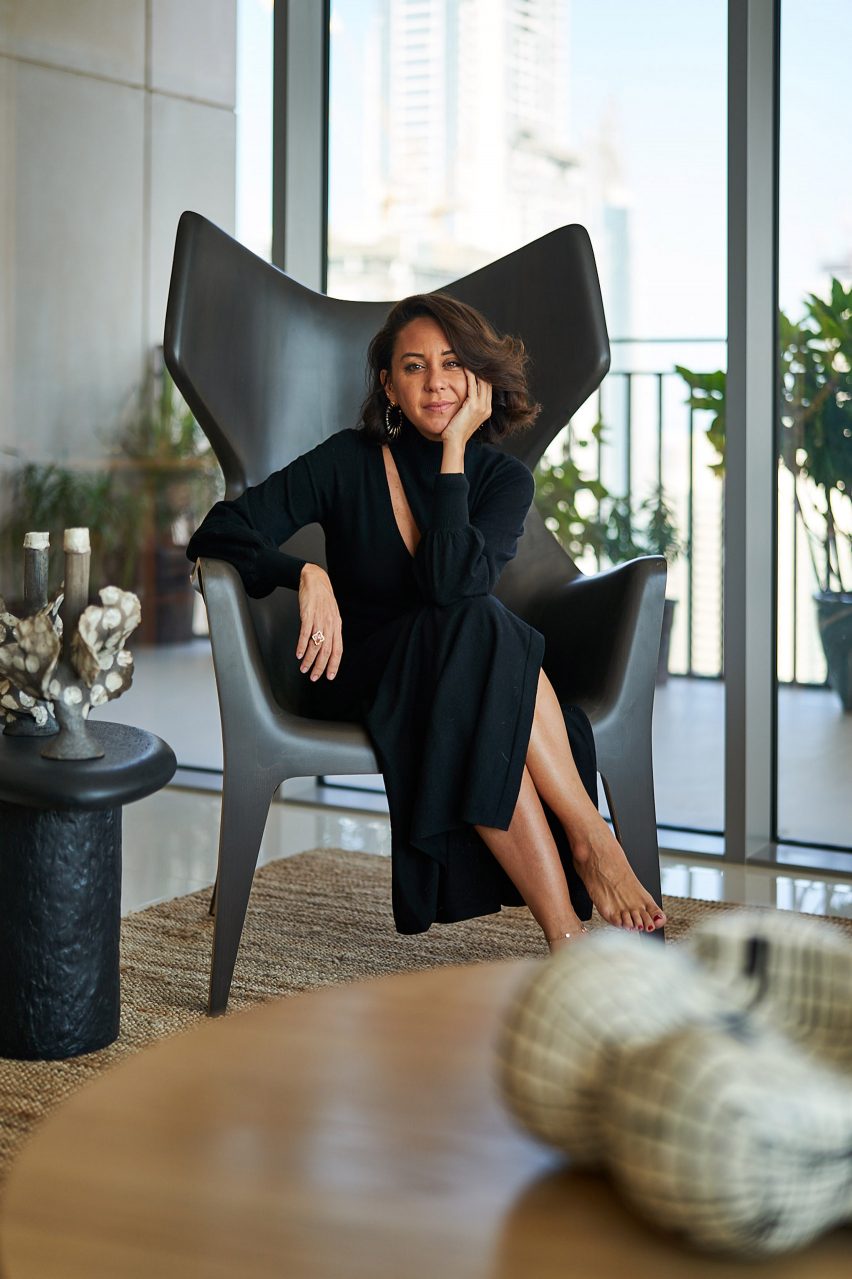
Despite ongoing airstrikes in southern Lebanon and advice against travelling to the country from many foreign governments, Wehbe and her team have decided to forge ahead with an event that they believe will make a huge difference to Beirut’s battered creative industries.
“The reason We Design sprouted is because Lebanon needs this,” Wehbe told Dezeen. “My country needs this. Our creative community needs this.”
She said that sometimes “continuing to do what you need to do” was the right course in times of crisis.
“This country needs something like this,” she continued. “It needs the magic back and the hope back.”
Sense of urgency drives scheduling of We Design Beirut
Lebanon has been struggling to recover from the triple blow of economic collapse, the Covid-19 pandemic and a devastating explosion in the capital’s port – all events that have transpired in the last five years.
An older annual design event, Beirut Design Week, was established in 2012 but has been on indefinite pause since 2019.
“After August 4 [2020, the date of the explosion], 300,000 people left the country,” Wehbe said. “It was an exodus. Our craftsmen were suffering, our student education dropped 30 per cent.”
It’s the country’s heritage crafts industries, in particular, that can’t afford to go much longer without additional support, said Wehbe.
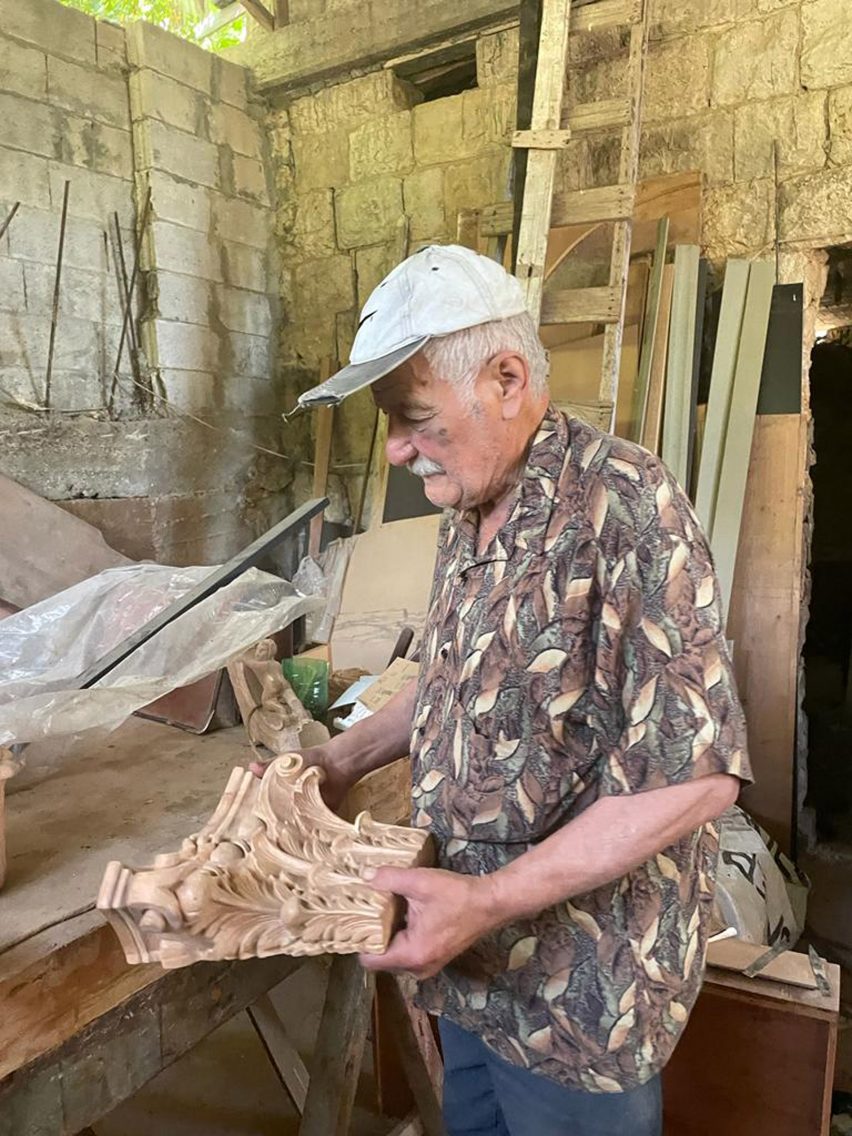
“The youngest man that is doing serious artisanal craft is 60 years old,” said Wehbe. “This is not being sent forward down the generations. That means if we don’t support them, we’re not going to have our artisans anymore. It is extremely important for us.”
Deciding to go ahead with We Design Beirut this month has meant balancing this sense of urgency against concerns about security and public mood.
Currently, there are frequent cross-border exchanges and airstrikes between Israel and Hezbollah in the south of Lebanon, and while none have yet hit Beirut, the affected towns are not far away and some fear the conflict could escalate.
Wehbe admits that anxiety is high, but says the event would not go ahead if the team were not confident about the security of its guests. She said that while “two or three” foreign guests had pulled out, most “cannot wait” to get on the ground.
“We would never put anybody at risk,” said Wehbe. “But at the end of the day, people have to make their own decisions.”
“The life was gone from our city”
Wehbe – who is the head of her own PR agency, Mariana Wehbe Public Relations – has made her name running high-profile luxury events with the likes of Vogue Arabia and AD Middle East.
But living in Beirut has brought detours to her path. In 2020, Wehbe was caught in the port explosion, which blew out the windows and partitions of her downtown office, showering the place in glass.
In the days after, she started an NGO called Bebw’Shebbek with an architect friend, fixing the doors and windows of the city’s homes and businesses. She describes Beirut as having a resilience that defies logic.
“For many, many, many, many months, the streets were dead – dead like an ICU dead, like black dead, like you could see that the life was gone from our city,” said Wehbe.
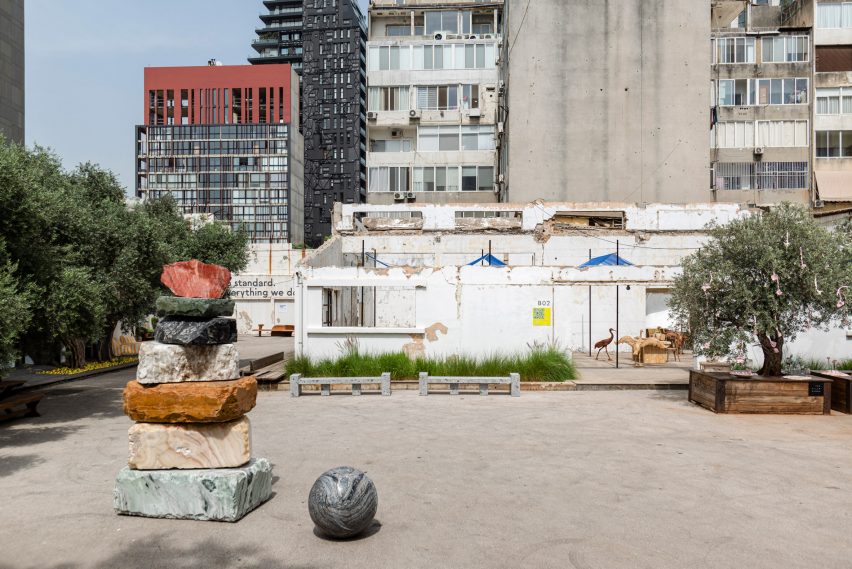
And yet a year after the explosion, she said she could start to feel the city’s heartbeat return, weak but persistent.
“And now, try to find a place in a restaurant!” she said. “Try to find a reservation.”
“There is something bigger than what we know here,” she continued. “There’s some magic, we’re on some cusp. I don’t know what it is, but I’ve lived long enough to know that this city will always come back to life.”
We Design Beirut has been driven by Wehbe’s passion, as well as that of her co-founders – industrial designer Samer Alameen and branding agency Bananamonkey – and many other volunteers and contributors.
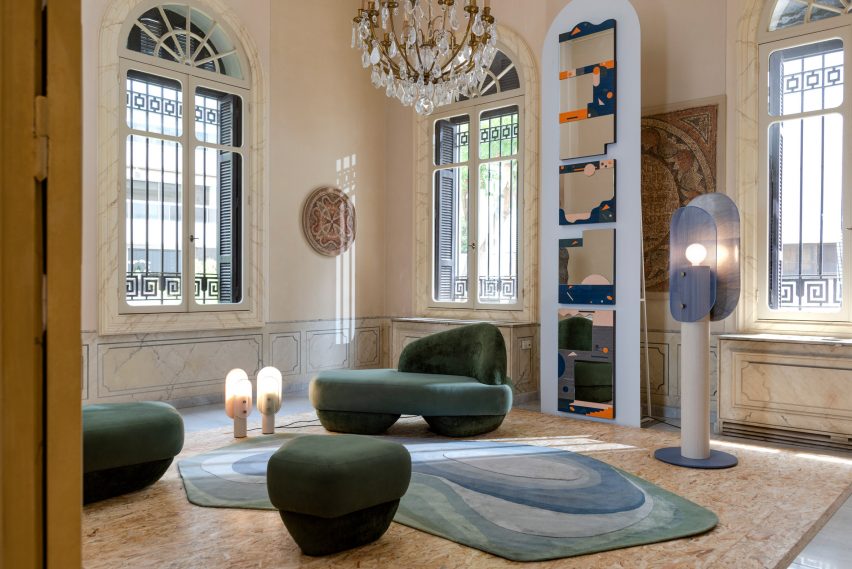
Wehbe said that although funding has been a challenge – the festival lost 70 per cent of what it had raised by postponing in October – she is proud of the grassroots nature of the event, which has a long list of private supporters, almost all women putting in relatively small amounts of money.
Unlike design events elsewhere in the world, the team has also had to make do without any funding from the government, which is widely blamed for the corruption and mismanagement that created the ongoing financial crisis.
Wehbe said that We Design Beirut will always remain independent of the state, financially and otherwise.
“It is too complicated for us,” she said. “And our government doesn’t have funding! We’re funding our city.”
Focus on social issues rather than trade show
Such unusually tense conditions mean the agenda is different to other design events. Wehbe says We Design Beirut will never have a trade show-style set-up with brands and booths, but will orientate itself towards social issues.
Shining a light on the country’s craft traditions is a big focus, as is opening up access to spaces that have been closed.
These include the studios of Beirut-born global lighting brand PSLab, a space that was devastated in the port explosion. It has remained empty ever since, says Wehbe, apart from for 20 or so olive trees that have apparently thrived on the grounds.
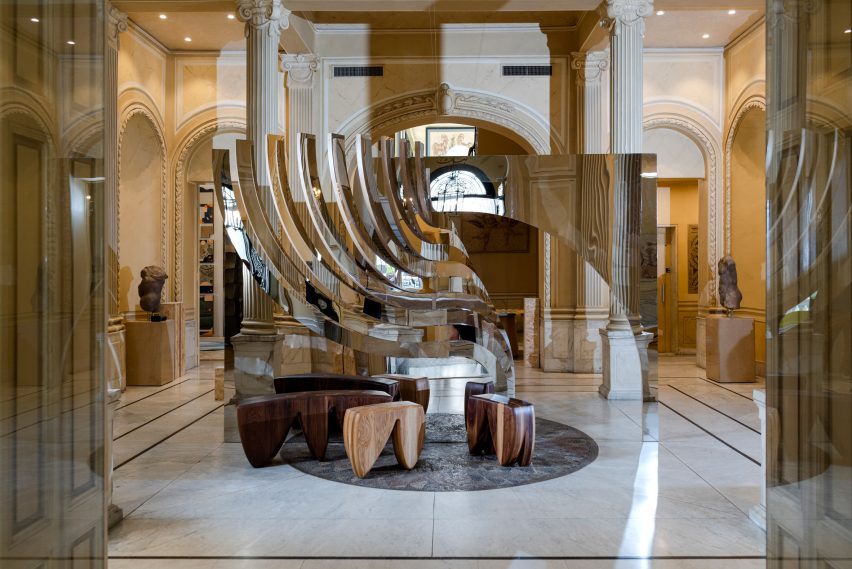
The space will host an artisan showcase, with craftspeople working in situ and displaying their crafts. Tile-makers BlattChaya will be among the exhibitors, along with artisans working with wood, brass, rattan and ceramics.
The We Design Beirut team also wanted to give some opportunities to the city’s design students, who have been tasked with creating an exhibition on sustainability within another rarely seen space, the Abroyan factory, a long-abondoned textile mill.
The exhibitions are free and open to all, but there are also a few ticketed events. A dinner will raise money for the Ghassan Abu Sittah Children’s Fund, a medical charity in Gaza.
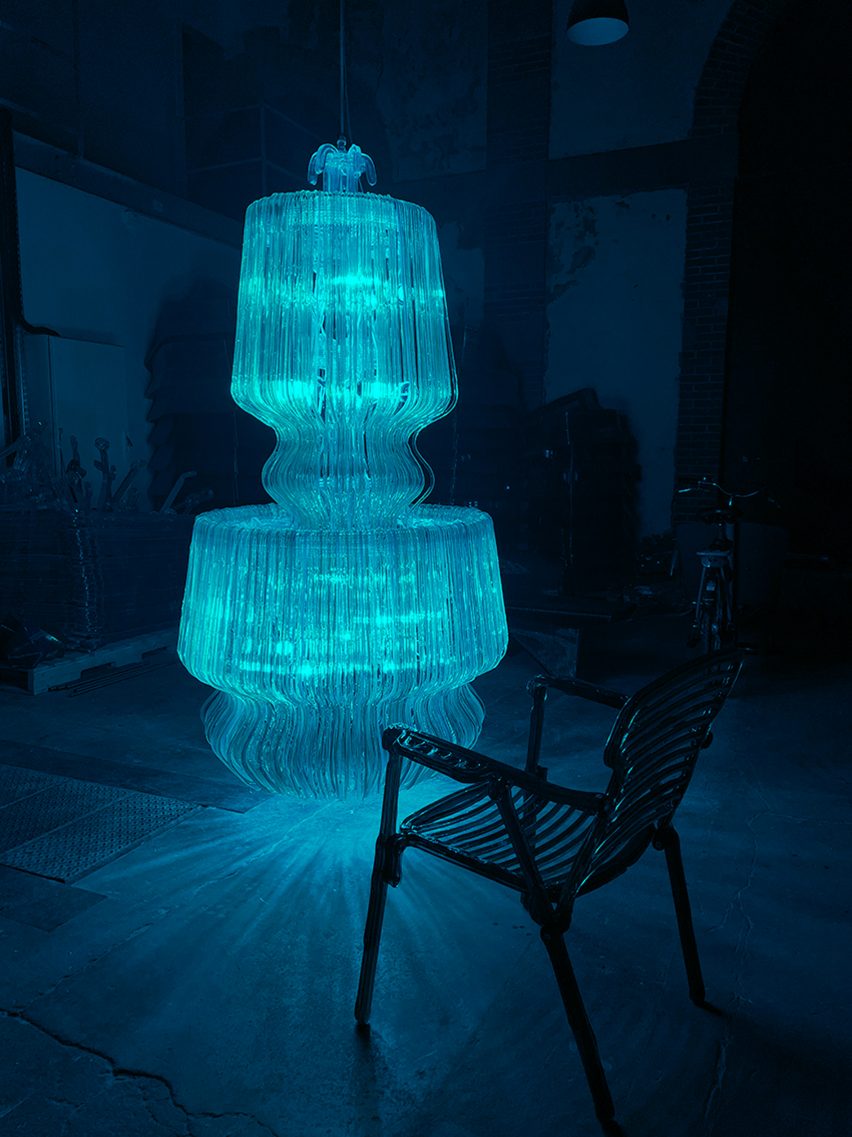
The suffering of the Palestinian people is at the forefront of the organisers’ minds, as it is for everyone in Lebanon, said Wehbe.
“We have a long history with the Palestinians,” said Wehbe. “They took refuge in our country and they’ve always had a place in Lebanon.”
Her message to Palestinians is that Lebanon’s creative community stands with them.
“This is not about if you are a Jew or if you are a Muslim,” she said. “This is now about humanity.”
The photography is by Walid Rashid unless otherwise stated.
Source: https://www.dezeen.com/2024/05/23/we-design-beirut-2024-mariana-wehbe-interview/